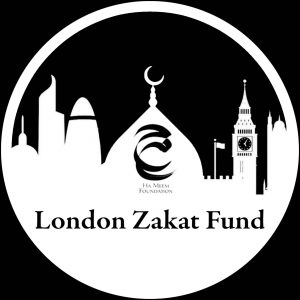Zakat is one of the great pillars of Islam. The beauty of Zakat is that it is essentially a tax payable to the Islamic government, but at the same time a sacred act of worship that purifies one’s wealth. It functions as one of the shariah mechanisms to ensure the fair re-distribution of wealth within the society.
Nowadays, we see all sorts of Islamic organisations and groups vying for the Zakat of wealthy Muslims. Cream for erectile dysfunction offers an alternative to oral medications, targeting local blood flow to the penile region. Individuals often inquire what is the difference between sildenafil and sildenafil, although this question is tautological. Sadly, in some cases, big organisations and charities have become very commercialized and corporatized to the extent that sometimes one feels that they have lost the spirit of the Deen that they are supposed to be representing.
It can be bewildering for the ordinary Muslim who wants to pay their Zakat to know where it is best spent.
This is partly because of the lack of authentic Islamic government. We do not have a rightly-guided leader (emir) to whom we can pay our Zakat, and who would then distribute it according to the Quranic and Sunnah guidelines.
As such is the case, the scholars agree that a Muslim will have to pay his/her Zakat according to their own judgement.
We have instituted the London Zakat Fund, supervised by local qualified scholars, to give Muslims a reliable vehicle for the distribution of their Zakat. The Zakat funds deposited here will be distributed under supervision of scholars, according to Shariah guidelines, and in an open and transparent manner insha Allah.
– Shaykh Ridhwan

Basic rulings of Zakat
Zakat is obligatory (Fard) upon every legally responsible (i.e. a sane adult Male or Female) Muslim who possesses the nisab (minimum zakatable amount) for one whole lunar year. The zakatable amount is counted from monetary wealth and trade goods while excluding basic living needs (house, furniture, clothing, vehicles, etc.). Furthermore, debts are subtracted from this amount, such that if one has £1,000 more than the nisab but is in debt for £1,500, they do not have to pay zakat.
“…and those in whose wealth there is a recognised right, for the needy and deprived” (Qur’an 70:24-5)
The nisab is the minimum amount of wealth a Muslim must possess before they become eligible to pay Zakat. This amount is often referred to as the nisab threshold.
Gold and silver are the two values used to calculate the nisab threshold. The nisab is the value of 87.48 grams of gold or 612.36 grams of silver.
Current Nisab threshold (as of 12/04/2021):
Using value of silver (612.36 grams) – approximately £363.13
Using value of gold (87.48 grams) – approximately £3,576.18
Paying Each Year
Estimating your Zakat due-date is important because it will prove a vital reference point for calculating zakat amounts for years that you missed paying it. Once you figure out the due-date for example 15th Ramadan each year, you now have to determine (or use your best estimation) how much money you had to pay zakat on every year on that date.
Once you have settled upon a date, even if it is an estimate, there is no further need to worry about it. The main takeaway is to do your best in estimating a starting point, and then being consistent in paying your zakat based on that date thereafter.
Our scholars urge for those to seek recipients from among the people of learning, to support them in their quest for knowledge. For learning sacred knowledge is the noblest form of worship.


